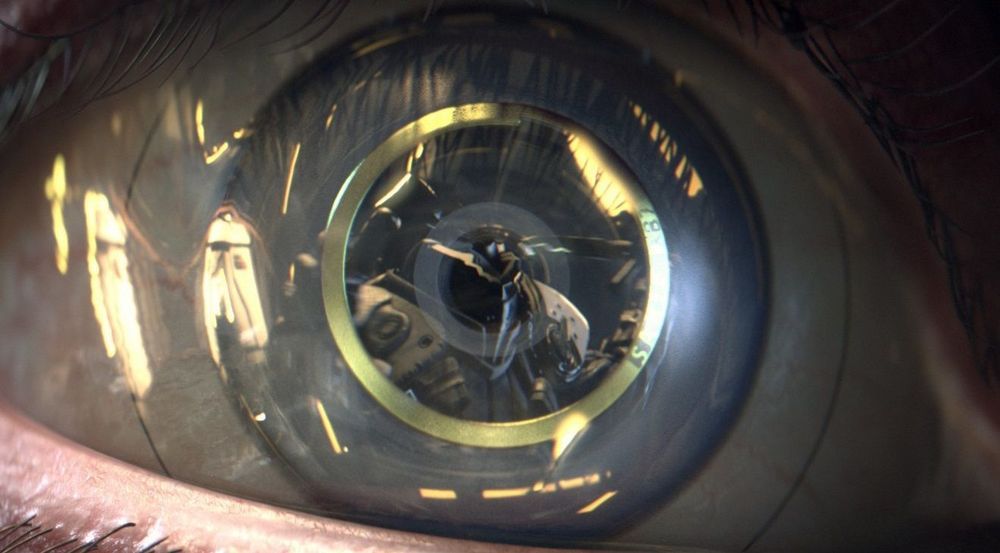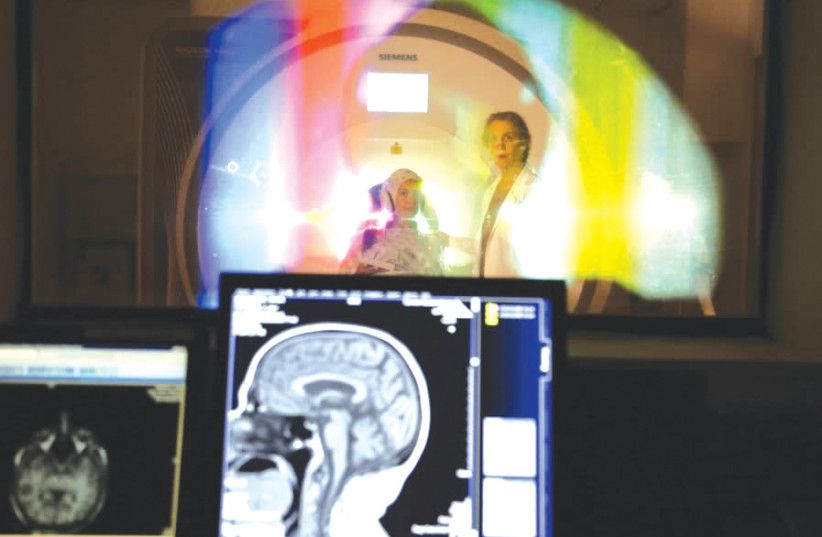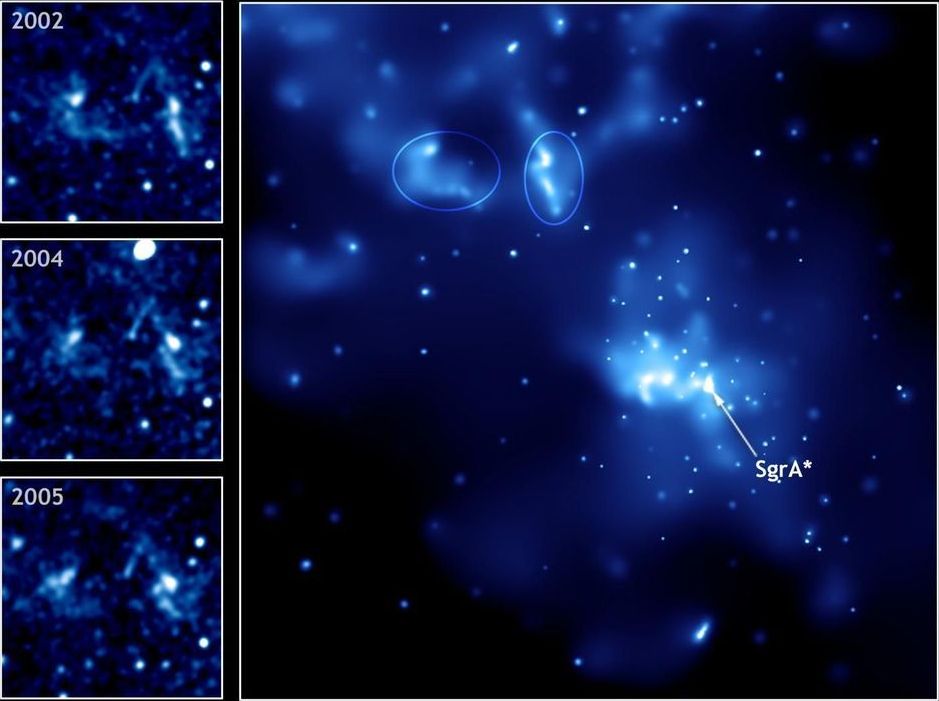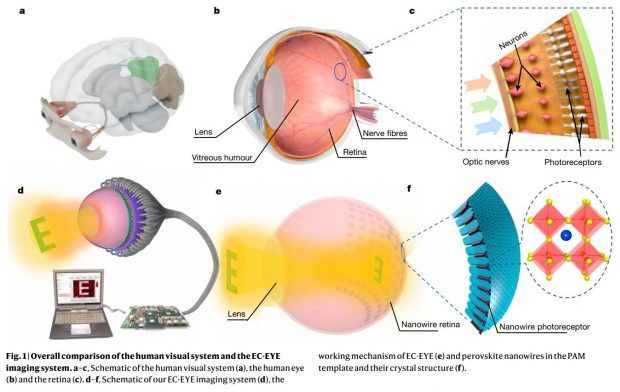Get the latest international news and world events from around the world.

New Bionic Eye Might See Better Than We Do
The ability to restore sight to the blind is one of the most profound acts of healing medicine can achieve, in terms of the impact on the affected patient’s life — and one of the most difficult for modern medicine to achieve. We can restore vision in a limited number of scenarios and there are some early bionic eyes on the market that can restore limited vision in very specific scenarios. Researchers may have taken a dramatic step towards changing that in the future, with the results of a new experiment to design a bionic retina.
The research team in question has published a paper in Nature detailing the construction of a hemispherical retina built out of high-density nanowires. The spherical shape of the retina has historically been a major challenge for biomimetic devices.

Breakthrough psilocybin study uncovers neurochemical origins of human ego
“And by answering the question, how do psychedelics work, we also inadvertently shine a light on other questions science has shied away from for decades. How do our brains generate our sense of self? What is the neurochemistry of consciousness?”
New research asks, how does psilocybin create a feeling of ego dissolution, and what chemicals in the brain create our subjective sense of self?
Could Solar Storms Destroy Civilization? Solar Flares & Coronal Mass Ejections
The probability of a Carrington-like event is estimated to be 12% per decade – that’s about a 50/50 chance for at least one in the next 50 years. Investments and upgrades, cheap compared to those other natural disasters require, could protect the worlds electric grid against even the nastiest of storms.
Sources here https://sites.google.com/view/sourcessolarflares
#CME #solarStorms
We have a bunch of new stuff, from the long requested bacteriophage infographic poster to a new Optimistic Nihilism poster that lets you enjoy some existential dread in style. Or join us in our ant obsession and get the new Ant Explorer Notebook, with beautiful infographics and facts about ants and gold lettering on the cover. If you’d rather update your wardrobe, have a look at our beanies or T Shirts. Or you know, all the other stuff!
David Sinclair on Aging and How we can reset our age
Good talk, not just about NAD. Q&A just before 35 minutes. A lot of epigenetics here.
David A. Sinclair, Ph.D., A.O. is a Professor in the Department of Genetics and co-Director of the Paul F. Glenn Center for the Biology of Aging at Harvard Medical School. He is best known for his work on understanding why we age and how to slow its effects. He obtained his Ph.D. in Molecular Genetics at the University of New South Wales, Sydney in 1995. He worked as a postdoctoral researcher at M.I.T. with Dr. Leonard Guarente where he co discovered a cause of aging for yeast as well as the role of Sir2 in epigenetic changes driven by genome instability. In 1999 he was recruited to Harvard Medical School where he has been teaching aging biology and translational medicine for aging for the past 16 years. His research has been primarily focused on the sirtuins, protein-modifying enzymes that respond to changing NAD+ levels and to caloric restriction (CR) with associated interests in chromatin, energy metabolism, mitochondria, learning and memory, neurodegeneration, and cancer. The Sinclair lab was the first one to identify a role for NAD+ biosynthesis in regulation of lifespan and first showed that sirtuins are involved in CR in mammals. They first identified small molecules that activate SIRT1 such as resveratrol and studied how they improve metabolic function using a combination of genetic, enzymological, biophysical and pharmacological approaches. They recently showed that natural and synthetic activators require SIRT1 to mediate the in vivo effects in muscle and identified a structured activation domain. They demonstrated that miscommunication between the mitochondrial and nuclear genomes is a cause of age-related physiological decline and that relocalization of chromatin factors in response to DNA breaks may be a cause of aging.
Explaining Communication with Space
Ever wondered how do we communicate with space? Watch yourself.


Israeli researchers explain how they are healing the world with precision
Data governs our lives more than ever. But when it comes to disease and death, every data point is a person, someone who became sick and needed treatment.
Recent studies have revealed that people suffering from the same disease category may have different manifestations. As doctors and scientists better understand the reasons underlying this variability, they can develop novel preventive, diagnostic and therapeutic approaches and provide optimal, personalized care for every patient.
To accomplish this goal often requires broadscale collaborations between physicians, basic researchers, theoreticians, experimentalists, computational biologists, computer scientists and data scientists, engineers, statisticians, epidemiologists and others. They must work together to integrate scientific and medical knowledge, theory, analysis of medical big data and extensive experimental work.
This year, the Israel Precision Medicine Partnership (IPMP) selected 16 research projects to receive NIS 60 million in grants with the goal of advancing the implementation of personalized healthcare approaches – providing the right treatment to the right patient at the right time. All the research projects pull data from Israel’s unique and vast medical databases.
HEALTH AND SCIENCE AFFAIRS: 16 Israeli projects get NIS 60m. to innovate next stage of healthcare.
The Coronavirus Is Spreading Through Indigenous Communities In The Amazon
“Now, nearly 2,000 people in and around Leticia are sick with COVID-19. About 70 have died. That might not sound like a colossal death toll at first. But because the surrounding state of Amazonas is sparsely populated, this amounts to the highest per-capita death rate in all of Colombia, according to figures from Colombia’s Health Ministry.”
The governor of Amazonas, Colombia, says it was impossible to cut the area off from Brazil, even as the virus spiked. Now the Colombian border town of Leticia is a coronavirus hot spot.

Innovative model provides insight into the behavior of the black hole at the center of our galaxy
Like most galaxies, the Milky Way hosts a supermassive black hole at its center. Called Sagittarius A*, the object has captured astronomers’ curiosity for decades. And now there is an effort to image it directly.
Catching a good photo of the celestial beast will require a better understanding of what’s going on around it, which has proved challenging due to the vastly different scales involved. “That’s the biggest thing we had to overcome,” said Sean Ressler, a postdoctoral researcher at UC Santa Barbara’s Kavli Institute for Theoretical Physics (KITP), who just published a paper in the Astrophysical Journal Letters, investigating the magnetic properties of the accretion disk surrounding Sagittarius A*.
In the study, Ressler, fellow KITP postdoc Chris White and their colleagues, Eliot Quataert of UC Berkeley and James Stone at the Institute for Advanced Study, sought to determine whether the black hole’s magnetic field, which is generated by in-falling matter, can build up to the point where it briefly chokes off this flow, a condition scientists call magnetically arrested. Answering this would require simulating the system all the way out to the closest orbiting stars.
